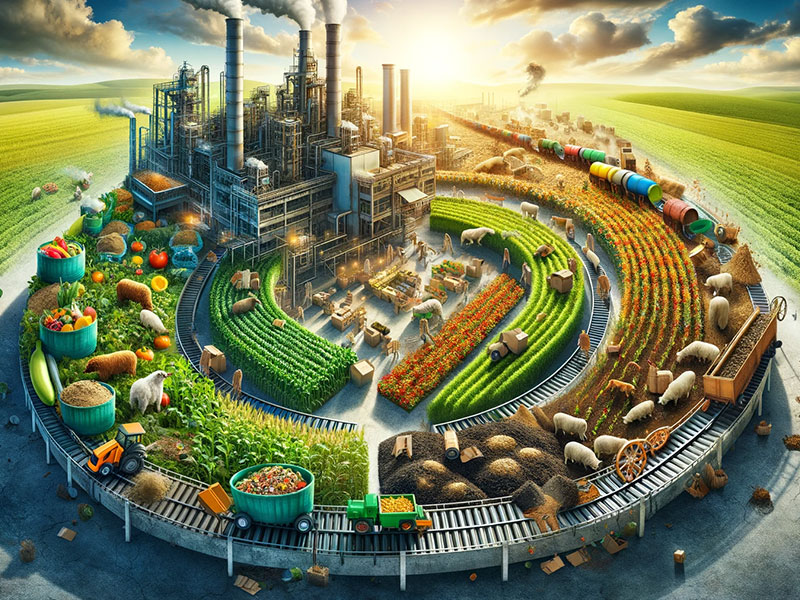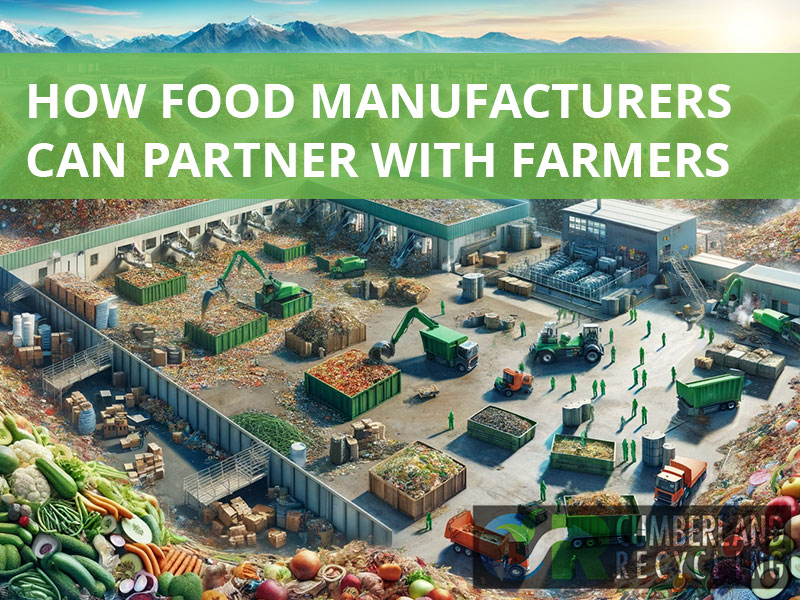In sustainability, the relationship between food manufacturers and farmers is increasingly crucial. The cycle is clear: manufacturers produce food waste, and farmers need organic matter for the soil. Both can benefit immensely by creating a partnership based on recycling food waste. This synergy is not just about waste management — it’s about building a more sustainable, circular economy.
The Need for Sustainable Practices in Food Manufacturing
Food manufacturing is a primary industry. It feeds nations but also generates significant waste. According to the Environmental Protection Agency, around one-third of all food produced is wasted globally. This is where the opportunity for a sustainable partnership arises.
How Food Manufacturers Benefit
- Reduced Waste Management Costs: Recycling food waste reduces the costs associated with waste disposal.
- Environmental Compliance: Many regions now have strict regulations regarding waste. Recycling helps in adhering to these laws.
- Corporate Responsibility: Engaging in sustainable practices boosts a company’s image.
The Advantages for Farmers
- Improved Soil Health: Recycled food waste can be converted into compost, enriching the soil.
- Cost-Effective: Using recycled waste is often more economical than synthetic fertilizers.
- Sustainable Farming: It promotes organic farming practices, reducing dependency on chemical fertilizers.

Building the Partnership
The partnership between food manufacturers and farmers is not automatic. It requires planning, coordination, and mutual understanding. Here are a few steps to forge this relationship:
- Identify Local Partners: Food manufacturers should identify local farms that could benefit from their waste. Proximity reduces transportation costs and carbon footprint.
- Understand Needs and Capacities: Both parties must understand each other’s needs and capacities. What kind of waste is available, and in what quantities? What do farmers need, and how much can they handle?
- Develop a Logistics Plan: Establishing an efficient system for waste collection, transportation, and processing is crucial.
- Compliance with Regulations: Ensure all practices comply with local and national environmental regulations.
- Regular Communication: Open communication lines help adjust to changing needs and resolve potential issues quickly.
A Real-World Example
A prime example of this symbiotic relationship is the partnership between a large-scale bakery and a nearby cattle farm in Minnesota. The bakery provides the farm with unsold bread and other bakery waste, which is then used as feed. This not only reduces the bakery’s waste but also lowers the feed costs for the farmer.
Conclusion
The potential for a fruitful partnership between food manufacturers and farmers is immense. Manufacturers can reduce their environmental impact and costs by recycling food waste, while farmers can access cost-effective, eco-friendly resources. This kind of collaboration is a step towards a more sustainable future, benefiting both the environment and the economy.
More information and guidance are just a call away for food manufacturers and farmers looking to explore such partnerships. Don’t hesitate to reach out and learn how you can be a part of this sustainable journey.
Contact us today to learn more about forging sustainable partnerships through food waste recycling.

